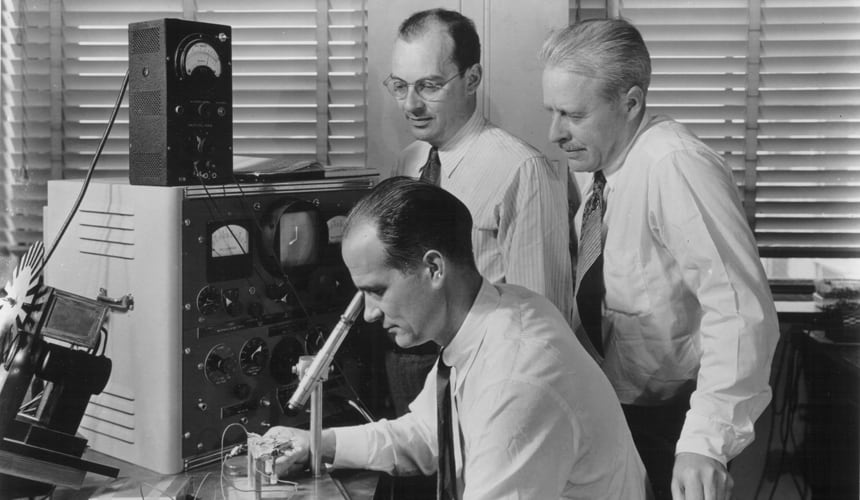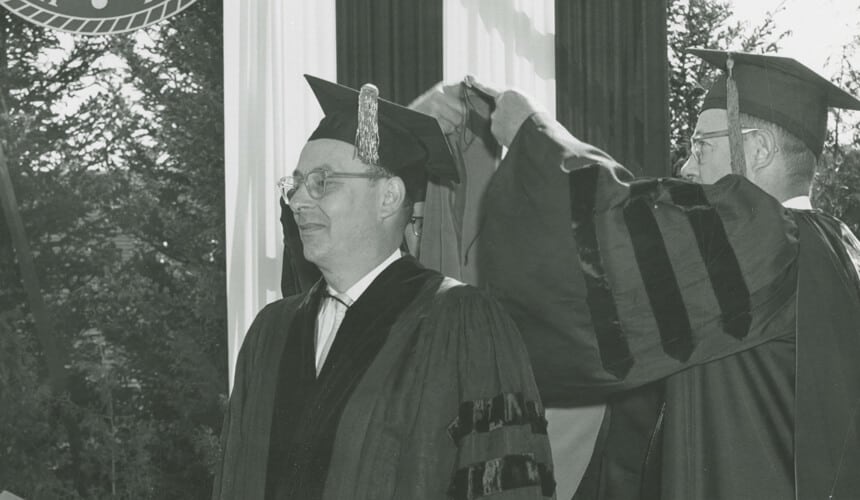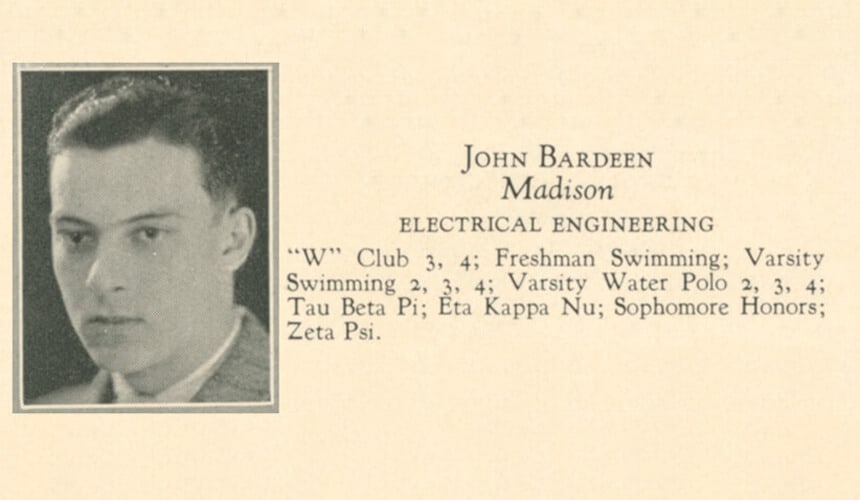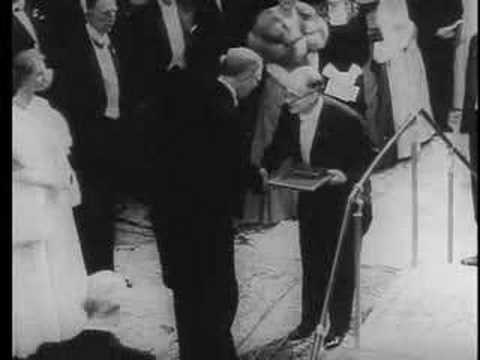John Bardeen
Two-Time Nobelist
The soft-spoken man who skipped so many grades that he became an eighth-grader at age nine went on to win two Nobel Prizes for work that enriches our daily lives.
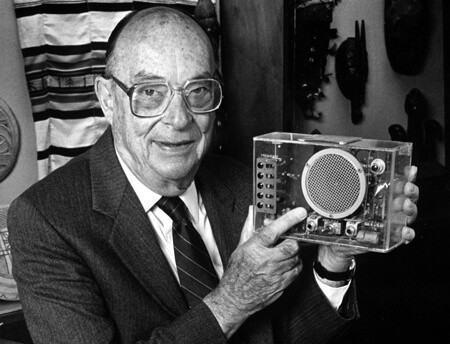
John Bardeen’s “music box” is the world’s earliest portable transistorized device.
The music box was created to demonstrate the transistor—not an easy thing to do before a stable design for the transistor was developed. Although the box looks like a radio, it is a musical instrument. On the left is a row of five black buttons, each of which produces a different tone when pushed. Thus, a simple song can be played on the box.
Madison native John Bardeen BS1928, MS1929, son of the University of Wisconsin’s first medical school dean, won his first Nobel with William Shockley and Walter Brattain in 1956. Their invention of the transistor, developed while they were working at Bell Labs, revolutionized modern-day electronics: fragile and bulky vacuum tubes that made amplification possible in televisions and radios could be replaced with tiny electrical devices. Transistors paved the way for today’s computer technology.
The three formed a productive team: Shockley was the experimentalist, Brattain was the theorist, and Bardeen was the materials expert. But by the time their invention was unveiled in 1948, tension had grown over taking credit and clashing egos. We can only hope that they split the Nobel winnings of $38,533 three ways.
At the Nobel ceremony, the king of Sweden asked Bardeen why all of his children weren’t present, and Bardeen assured him that they would be next time. He made good on that promise in 1972, when he accepted his second Nobel in physics, becoming the only individual to win two prizes in the same field. Bardeen, Leon Cooper, and John Robert Schrieffer were honored for their explanation of superconductivity. Calling it the BCS theory (for the initials of their last names), the trio explained that certain metals can conduct electrical current when cooled to temperatures close to absolute zero.
From The Park
Science is a field which grows continuously with ever-expanding frontiers.
Source: Used by permission of copyright holder.
The theory led to practical uses such as magnetic resonance imaging for medical diagnoses, and Bardeen considered it to be his greatest achievement. But he didn’t begrudge the teamwork it required. “Science is a collaborative effort,” he once said.
Because Bardeen “differed radically from the popular stereotype of ‘genius’ and was uninterested in appearing other than ordinary, the public and the media often overlooked him,” wrote historian Lillian Hoddeson.
He took that same unassuming nature home each evening. When he returned after work on the day the transistor was born in December 1947, he murmured to his wife, “We discovered something today.” They did indeed.
 67° F
67° F